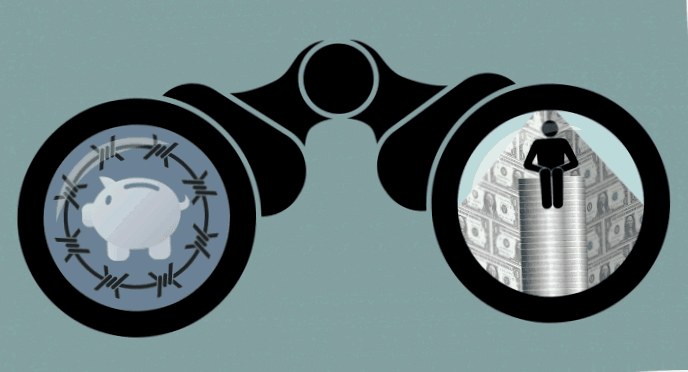Private ownership shatters utopia

The year 2020 and utopia vi
In almost all utopian designs and practical attempts, one characteristic runs like a red thread: the absence of private ownership of the means of production. Almost as a matter of course, utopian societies are built on a communist basis: as a rule, production is organized on a common-economy basis, private property is abolished. Utopia equals public economy. And thus light years away from the year 2020.
Part i: what’s left of the future of the past part ii: sex and utopia part iii: food as the new religion part iv: the commune was mainly yesterday part v: funny: retiring at 45
In utopia there is obviously no private property. In the first book, morus has his protagonist hythlodeus say that only one way leads to the good of the state: "the proclamation of equality of property, which can never be carried out where individuals still have private property." as long as property is not abolished, by far the best and largest part of mankind will live in poverty and drudgery. This condition could be weakened and mitigated by laws, but it could not be overcome.
The early socialist robert owen considers private property (along with marriage and religion) to be one of the causes of all evil. Its abolition is the prerequisite for a human society.
At bellamy ("a review from the year 2000") the private ownership of the means of production is abolished. Instead of private enterprises, corporations and trusts, there is now a single giant national enterprise that operates for the common good and is directed by the president and run like an army. In this army of labor there is a duty or. Compulsory work for the citizens. The state also provides for all the needs of its citizens, saved money as capital does not exist, neither do private sales, nor trade at all. Private ownership of things like land or houses does not seem to exist.
August bebel (1879) stands for the marxist-oriented social democracy of the 19th century. Century and his theoretical basis is the "scientific socialism". For him it was clear that capitalism would be swept away and replaced by a new society. The first basis of which is the abolition of private ownership of the means of production, the "expropriation of the expropriators": "the transformation of all means of labor into common property creates the new basis for society."
The kibbutz is based on the principle of community of good. This is stated in § 3 of the statutes of the united kibbutz movement: "the kibbutz is a free association of persons for the purpose of establishing, integrating and managing a collective settlement organized on the principles of communal ownership of landed property, own labor, equality and cooperation in the fields of production, consumption and education." private ownership of monetary assets or real estate is not allowed under these principles.
Property exists on anarres ("planet of the have-nots") only in the form of personal property in small amounts. Beyond that there is no private property. The basic principle of society is that of equality and solidarity. "We have nothing but us", shevek puts it in a nutshell. Egoism is considered reprehensible and the term serves as a swear word. Similar to the term "profiteer", the profit maker. The word "have" is virtually erased from the vocabulary and replaced by "share" .
Most of the fictional and real utopias presented here refer to a society in which private property has disappeared or receded into the background. The private property is opposed to the common property. The individual is suspended in the community.
The future of private property – in the drafts and practical attempts it consists in the disappearance of the same. What a difference with the real development in the world! Probably never before has so much private property or wealth been in so few hands – globally speaking. In 2017, the human rights organization oxfam presented a report according to which eight billionaires – including bill gates (microsoft), mark zuckerberg (facebook) and jeff bezos (amazon) – have as much wealth as the poorer half of the world’s population – i.E. 3.5 billion people. In germany, one percent of the population owns one third of the total wealth.
Wherever else the paths of utopia led, the world went in the opposite direction when it came to private property. This also applies to the welfare state, which was dismantled in the phase of neoliberalism, increasing social inequality. In conclusion, the areas of reality that are furthest from utopia are those that lie at the core of the social order, that is, those that are grouped around the relations of production. The center is the private ownership of the means of production and the production of commodities.
Around this core are grouped the phenomena of the organization of labor, wages, consumption and distribution. They are subject to the gravity of private property, which is expressed in the difference of today’s conditions to the utopian designs. Areas more distant from this core, such as sexuality, clothing, or food, are more neutral with respect to utopian intentions or have come closer to them. 2020: private property, like the sun, forms the center of the system, while relatively independent forms of life emerge at its edges (uranus, pluto). And in between, the utopian manuscripts of the past are drifting
